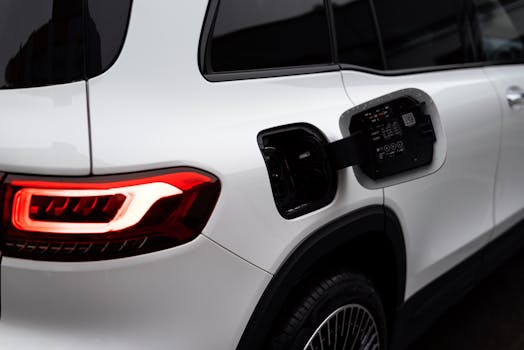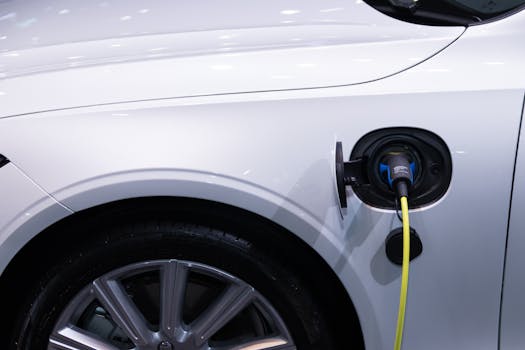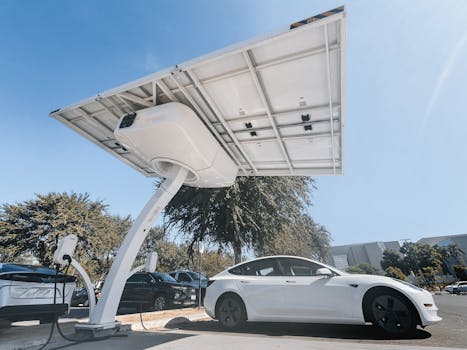
The Future of Automotive Technology: Embracing Electric and Hybrid Vehicles
Takeaways: The automotive industry is undergoing a significant transformation with the rise of electric and hybrid vehicles. These vehicles offer numerous benefits, including reduced emissions, lower operating costs, and advancements in technology. As governments and consumers prioritize sustainability, the future looks bright for electric mobility.
The automotive landscape is evolving rapidly, driven by technological advancements and a growing awareness of environmental issues. Electric and hybrid vehicles are at the forefront of this revolution, promising a cleaner, more efficient future for transportation. In this article, we will explore the current state of electric and hybrid vehicles, their benefits, challenges, and what the future holds for automotive technology.
The Rise of Electric Vehicles

One of the key drivers behind the rise of electric vehicles is government regulations aimed at curbing greenhouse gas emissions. Many countries are setting ambitious targets for reducing emissions, leading to incentives for consumers to switch to electric. For example, tax credits, rebates, and access to carpool lanes are just a few of the benefits offered to EV owners.
Benefits of Electric Vehicles
The benefits of electric vehicles are numerous. Firstly, EVs produce zero tailpipe emissions, which significantly reduces air pollution in urban areas. This is particularly crucial as cities grapple with the adverse effects of pollution on public health.
Secondly, electric vehicles offer lower operating costs. With electricity generally cheaper than gasoline, and fewer moving parts leading to reduced maintenance costs, EV owners can save money in the long run. Additionally, advancements in battery technology have led to increased range and improved charging times, making EVs more practical for everyday use.
Challenges Facing Electric Vehicles
Another challenge is the environmental impact of battery production. The mining of lithium, cobalt, and other materials used in batteries raises concerns about sustainability and environmental degradation. As the demand for EVs grows, addressing these issues will be crucial to ensuring a truly sustainable future.
The Role of Hybrid Vehicles

There are different types of hybrids, including mild hybrids, full hybrids, and plug-in hybrids, each offering varying degrees of electric assistance. This flexibility allows consumers to choose a vehicle that best suits their needs, making hybrids an appealing option in the shift towards greener transportation.
Benefits of Hybrid Vehicles
Hybrid vehicles offer several advantages, including better fuel economy compared to traditional vehicles. This is particularly beneficial in urban settings where stop-and-go traffic can lead to increased fuel consumption.
Furthermore, hybrids produce lower emissions than conventional cars, contributing to cleaner air quality. They also provide a smoother driving experience due to the electric motor’s instant torque, making them enjoyable to drive.
Challenges Facing Hybrid Vehicles
Despite their benefits, hybrid vehicles also face challenges. One of the primary concerns is the complexity of their systems, which can lead to higher maintenance costs compared to standard vehicles. Additionally, while hybrids are more efficient than traditional vehicles, they still rely on fossil fuels, which may not align with the long-term goal of complete sustainability.
Looking Ahead: The Future of Automotive Technology

Furthermore, the integration of renewable energy sources into the charging infrastructure can enhance the sustainability of electric vehicles. As solar and wind energy become more prevalent, charging EVs with clean energy can significantly reduce their overall carbon footprint.
Conclusion

While challenges remain, the ongoing investments in technology and infrastructure promise to make electric and hybrid vehicles increasingly viable options for consumers. Embracing these innovations will not only benefit individual drivers but also contribute to a healthier planet for future generations. The road ahead looks promising, and it’s an exciting time to be part of the automotive revolution.







